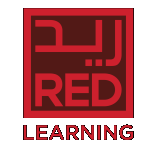1. What is PMI RMP, and why is it important for project managers?
Answer: PMI RMP, or Risk Management Professional, is a specialized certification offered by the Project Management Institute (PMI). It is designed for professionals who want to enhance their expertise in identifying, assessing, and managing risks within the project management context. The certification is important for project managers as it demonstrates a heightened ability to navigate uncertainties, make informed decisions, and contribute significantly to the success of projects by proactively addressing potential risks.
2. What are the eligibility requirements for PMI RMP?
Answer: To be eligible for PMI RMP, candidates typically need a secondary degree (high school diploma, associate’s degree, or global equivalent), 4,500 hours of project risk management experience, and 40 hours of project risk management education. Alternatively, candidates with a four-year degree require 3,000 hours of project risk management experience and 30 hours of project risk management education.
3. How can I apply for the PMI RMP exam, and what does the application process entail?
Answer: The application process for the PMI RMP exam is conducted online through the official PMI website. Candidates need to create an account, submit details about their education, project risk management experience, and complete the required training hours. It’s essential to provide accurate and detailed information during the application process to ensure eligibility.
4. What topics does the PMI RMP exam cover, and how is it structured?
Answer: The PMI RMP exam assesses knowledge and skills in several domains of risk management. These domains include risk strategy and planning, stakeholder engagement, risk monitoring and reporting, and risk response and control. The exam is structured with multiple-choice questions, and the number of questions and the duration may vary. It is typically administered in a computer-based testing format.
5. How long is the PMI RMP certification valid, and what is required for maintenance?
Answer: PMI RMP certification is valid for three years. To maintain certification, professionals need to earn and report 30 Professional Development Units (PDUs) related to risk management within each three-year certification cycle. This ensures that certified individuals stay updated with advancements in risk management practices.
6. Can PMI RMP be pursued alongside other PMI certifications, and how do they complement each other?
Answer: Yes, professionals can pursue multiple PMI certifications concurrently. PMI RMP can complement other PMI certifications, such as PMP (Project Management Professional). While PMP provides a broader understanding of project management principles, PMI RMP adds a specialized focus on risk management, creating a well-rounded skill set for individuals managing complex projects.
7. What are the benefits of earning PMI RMP certification for career advancement?
Answer: Earning PMI RMP certification provides various benefits, including increased career opportunities, heightened credibility in the field of risk management, and the ability to contribute significantly to organizational success. The certification acts as a validation of expertise, setting certified individuals apart in the competitive landscape of project management.
8. Are there specific study resources available for PMI RMP exam preparation?
Answer: PMI offers a variety of study resources for PMI RMP exam preparation, including the Project Management Body of Knowledge (PMBOK) Guide – a foundational resource for project management. Additionally, PMI provides practice exams, reference materials, and online training resources. Many third-party providers also offer study guides and training courses to assist candidates in their preparation efforts.
9. Is PMI RMP recognized globally, and what is its standing in the project management community?
Answer: PMI RMP is globally recognized and holds significance in the project management community. Achieving this certification signifies a commitment to excellence in risk management and is acknowledged by industry professionals, organizations, and employers worldwide. It establishes a standardized benchmark for individuals seeking to excel in the specialized field of project risk management.
10. How can I stay informed about updates and changes related to PMI RMP certification?
Answer: Professionals interested in PMI RMP certification should regularly visit the official PMI website for the most up-to-date information. PMI provides detailed information about certification requirements, exam updates, and any changes to the certification process. Additionally, candidates can engage with PMI’s community forums, attend webinars, and participate in networking events to stay informed about industry best practices and advancements in risk management.
These detailed responses provide a more comprehensive understanding of PMI RMP and address various aspects related to eligibility, exam preparation, certification maintenance, and the broader implications for career growth in the field of risk management within project management.




